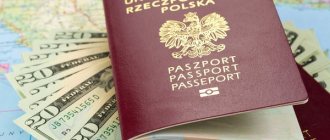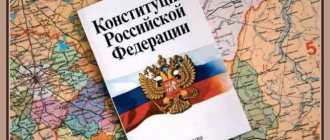The meaning of the word "repatriation"
In a general sense, “repatriation” is the return of someone or something from another country to its homeland. These could be, for example, citizens coming to the state in which they were born and raised from abroad, where for some reason they lived for a long time. As a rule, this type of repatriation is typical for people returning to their ethnic homeland. At the level of international law, this phenomenon was recorded at the Geneva Convention in 1949.
There, issues of repatriation in peacetime were considered, as opposed to the practice of moving citizens between countries during military operations that were relatively recent at that time. There are other interpretations of the term. These include, for example, capital repatriation: when money earned by a person abroad is returned to his homeland. This term can also be associated with the sphere of culture and art. In this case, certain valuables located abroad are returned to the country of historical origin.
Repatriation programs in different countries
Despite the fact that the concept and essence of repatriation is described in international law, each state itself regulates the procedure for the return of its potential subjects to their homeland. Its features depend both on many aspects of local legislation and on the mentality of the nation, but it is easy to see that in many countries there are special repatriation programs aimed at returning people and uniting the population on its territory.
Immigration to Israel along the Jewish line
In Israel, there is a certain “Law of Return”, which states that every person who can prove the presence of Jewish roots has the right to become a subject of Israel. The law was adopted almost seventy years ago, and since then its essence has remained virtually unchanged. However, Jewish roots are not all the requirements for a repatriate. The inhabitants of Israel are very religious, which is clearly reflected in the country's legislation, so a person who wants to obtain lost citizenship must be a Jew.
Following the provisions of the Law of Return, adopted back in 1950, every Jew can become a citizen of the State of Israel
The most famous Israeli repatriation program is Aliyah. It combines several narrow repatriation programs that are aimed at certain categories of migrants. For example, there are separate programs for doctors or people aged 33 to 42 years. They are designed to attract the maximum number of young able-bodied people or specialists of a narrow, in-demand profile to the country.
Video: how to repatriate to Israel - different methods, their pros and cons
Germany: Relocation Program for Ethnic Germans and Jews
Germany adopted a program aimed at repatriating potential Germans relatively recently. Even before the 90s of the last century, the procedure was not clearly regulated. According to local legislation, people who are German or Jewish by nationality can become repatriates if they or their ancestors left the country due to the events of the Second World War or in connection with its consequences. A quota of 100 thousand people is allocated annually. As a rule, most repatriates returned to Germany from the Soviet Union.
As for representatives of Jewish nationality, separate conditions for moving to Germany are provided for them, under which it is not difficult for people to immigrate. Having German relatives in your family will only strengthen your rights to legal relocation.
Immigration to Germany along the Jewish line is a very popular way to settle in Germany among residents of the former USSR with Jewish roots
"Repatriation Law" in Poland
Poland adopted the controversial “Repatriation Law” in 2000. According to it, foreigners who cross the Polish border on a reparation visa are entitled to Polish citizenship immediately after arriving in the country. In 2021, new amendments to the law were adopted that further simplify the process. Repatriates will be provided with financial assistance for relocation and adaptation; it is planned to organize training in the basics of the Polish language and create a special government body for consultations on issues of returning to their historical homeland. These innovations are aimed primarily at ethnic Poles who, by the will of fate, found themselves on the territory of the former USSR. Poland expects the most repatriates from Kazakhstan and Uzbekistan.
The Republic of Poland recognizes Polish roots up to the fourth generation (that is, up to great-grandparents). As practice shows, it is not easy to prove that the ancestors of the fourth generation belong to the Polish nation, because documentary information can no longer be found in archives and on home shelves, but if the applicant still succeeds, he receives the right to become a subject of the modern Republic. However, in order to fully move to Poland and obtain local citizenship, you must not only prove a connection with your historical homeland, but also show the proper level of proficiency in the language and culture of the modern country.
By the way, Poland is one of those countries that recognize repatriates as such only after they actually legally cross the country’s border.
Video: review of repatriation to Poland
Latvia, Estonia, Lithuania: features and problems of return
All three Baltic republics give repatriates the right to return to their homeland, but their legislation has several features that may unpleasantly surprise Russian people. The fact is that their government has a negative attitude towards the period of history when these countries were part of the Soviet Union, considering these years to be a real occupation. This understanding of one’s own history could not but affect the countries’ legislation and their attitude towards some foreigners. Latvia, Estonia and Lithuania can recognize as their citizen only a person who permanently resided on their territory exclusively during the period of independence (1918–1940 and after 1991). If your ancestor moved to the territory of the republics during Soviet times, you do not have the right to repatriation.
Lithuania, Estonia and Latvia recognize as repatriates people who plan to move to the country, having relatives from these republics up to the third generation (up to grandparents). In addition, potential immigrants must self-identify as representatives of the nation (Latvians, Lithuanians, Estonians), know the language and culture of the state, and also respect its legislation. According to the laws of these countries, an immigrant can obtain citizenship under a simplified scheme, but no one obliges him to live on the territory of the state, nor to renounce his previous citizenship.
Video: repatriation to Finland from Russia
Civil repatriation: world experience
People returning to their homeland after a long life abroad are called repatriates. In different states, the practice of government interaction with these individuals may have national characteristics. In some countries, repatriates have the status of migrants with the right to temporary residence. In others, people returning from abroad will soon receive citizenship. There are countries with a very large proportion of such persons. In Israel, for example, a fifth of the population are repatriates.
Among the states that pay attention to the problem of returning people of an indigenous ethnic group or former citizens to their homeland are Russia, Armenia, Greece, Germany, Hungary, and the Baltic countries. Repatriates in these countries are guaranteed a wide range of civil rights. According to a number of experts, the return of people to their historical homeland is an extremely positive phenomenon. Largely because the country’s demographic and labor resources are replenished. Repatriation is a good thing for the country, from this point of view.
The concept and essence of repatriation
You can repatriate to a number of countries: Latvia, Germany, Poland, Israel, South Korea and many others. The concept itself, according to the Universal Declaration of Human Rights, adopted in the middle of the last century, provides for a voluntary return to their historical homeland. The receiving party (state) provides the immigrant with all entry permits, necessary documents, social protection, and also provides the potential repatriate with the right to obtain citizenship of the country.
The purpose of repatriation pursued by states is to unite the nation on its territory, as well as the return of emigrants or their children who left the country in difficult times (wars, crises, annexations, and so on).
Every year, an increasing number of countries are trying to unite and concentrate potential compatriots within their borders
When capital flows home
There are many interpretations that define what repatriation of funds is. This may be, as some experts believe, a conscious attempt by the state to return previously illegally exported capital. Thus, in this vein, the term in question is an element of national monetary regulation. Managing the repatriation of money helps the government and the Central Bank of the country control inflation, the exchange rate of the national currency, and ensure the quality of financial settlements in the economy. Some states specialize in the export of capital, an integral part of the work with which will also be repatriation - this allows them to improve national indicators of the balance of payments and foreign exchange processes. The process of cross-border movement of money, as a rule, involves not only the countries that are the homeland of the owner of capital, but also the states from which funds are exported. Currency flows may be subject to special types of taxes. There are many legal nuances when making cross-border payments through repatriation channels.
Goals pursued by states when repatriating money
Any interstate movement of finance, including such a phenomenon as the repatriation of foreign exchange earnings, is an instrument of the national economic development strategy. As mentioned above, there are capital exporting countries. There are also currency importing states. Their policies most often depend on the real state of affairs in the economy: during normal, stable development, restrictions on the import and export of capital are weakened, but when a crisis occurs, the turnover of cash flows can be strictly limited. Especially when it comes to the repatriation of money invested in the economies of such countries. Regulation of the movement of capital can be carried out in the interests of national monopolies, as well as for the purpose of adjusting economic macro indicators. The state can provide additional guarantees for cross-border movement of finances on its behalf and provide insurance protection for foreign capital in the presence of political risks.
The stock exchange is an accumulator of capital repatriations
A special case of capital repatriation is the return to the homeland of profits received from investments abroad. In modern interstate economic partnerships, this procedure is most often associated with the stock market. National funds where trading is carried out, as a rule, form the bulk of capital by attracting money from foreign investors. As such, repatriation of profits occurs at the time of sale of shares.
The investor exchanges them for money that he can cash in his country, and thus leaves the market where the trade is taking place. Of course, due to minimal restrictions on the international purchase and sale of shares, such cycles can occur several times a day - this is why the stock market was created. But from a formal point of view, the withdrawal of profits received during trading on the RTS or MICEX by foreigners is a full-fledged repatriation. This suggests that the country’s government is interested in positive investment dynamics.
Russian legislation on repatriates and the Government program
People first started talking about repatriation in Russia in 2006. The prerequisite for the adoption of the law was the reform of the procedure for obtaining Russian citizenship, which reached a critical point in the issue of bureaucracy. It was decided that repatriates should receive priority in assigning them civil status, which, in turn, will have a positive impact on the country's economy and demographic situation.
Since former citizens of the RSFSR did not write any statements about renunciation of citizenship and were forced to leave their homeland, the easiest way was to change the legislation: it was decided that repatriates would be given the opportunity not to “receive”, but to “restore” their citizenship.
In different countries, repatriation programs have different names with national connotations:
- in Israel - Aliyah;
- in Armenia – Yerkir;
- in Poland – repatriation of repressed Polish citizens;
- in Kazakhstan – Nurly kosh;
The state program to promote the voluntary resettlement of compatriots to the Russian Federation is often called in short: the “Compatriot” program or the Compatriots Resettlement Program.
Who can be included in the category of repatriates
So, speaking about the Russian Federation, by the term “repatriation” we mean the procedure for returning to their homeland compatriots who, for various reasons, ended up abroad. To understand who a repatriate is, we first find out who Russian law calls compatriots:
- citizens who were once USSR citizens and live today in the territory of the former Soviet republics;
- citizens of the Russian Federation who live in other countries;
- persons who emigrated from the Russian Empire, Russia during the February Revolution and the RSFSR, received citizenship of other countries or remained stateless.
To become a participant in the program, you will have to document your belonging to one of the listed categories. The repatriation department under the Directorate for Migration Issues of the Ministry of Internal Affairs of the Russian Federation deals with all issues.
Return of cultural values to their homeland
In states with a rich national culture, wonderful examples of folk art appear, as well as objects of art obtained through international exchange. For various reasons, all these valuables may end up abroad. Most often this is due to military actions or liberties during colonial policy in imperial times. Today, states in which cultural values were created that ended up in other countries are actively working to return the national heritage to their homeland.
Their goal is the repatriation of cultural property. Major conferences are being held on issues related to the practice of partnership between different countries on this issue. Particularly active are states with a history dating back to antiquity: Egypt, Greece, Libya. Countries in Africa and Latin America are not left out. The main difficulty of the negotiations is that the states where cultural values are currently located do not always recognize the legitimacy of certain demands from the international community.
Repatriation Law
Polish legislation contains four points from different areas, which are sometimes amended:
Basic provisions of the law on repatriation
- It has been established who is applying for repatriate status.
- Conditions for granting the right of residence to such persons.
- Rights of citizens who have returned.
- Loyalty system for visitors.
The law on repatriation in Poland was adopted in January 2000. After 17 years, large-scale amendments were made to it, thanks to which repatriates are provided with additional assistance and their rights have become more significant.
It is planned that a special program for the return of ethnic Poles will operate until 2021 inclusive. According to the law, repatriates are persons who, having Polish roots, apply for permanent residence in the country using a certain visa document.
Since 2021, the adaptation of the ethnic population has been faster and more comfortable. A government body was created that is designed to advise citizens. Adaptation centers for repatriates were also opened.
Visiting them provides an opportunity to improve or learn the Polish language, as well as master certain professions. In addition, it is now easier to obtain not only a residence permit, but also citizenship.
The changes also affected benefits. For 2021, during the first half of the year, the repatriate is provided with a monthly allowance of 600 zlotys (142 euros). For each family member, a one-time payment of 4,000 zlotys (947 euros) is provided. By collecting this amount, you can solve the housing issue.
When a repatriate buys his own property, a one-time payment of 25,000 zlotys (5,920 euros) is given for the arrangement. If the house or apartment is in unsatisfactory condition, you can count on an amount of 6,000 zlotys (1,420 euros) to make repairs.
These data may vary depending on the situation. Financial assistance is provided by the country to persons who have acquired Polish citizenship for the first two years.
Detailed information about Poland's new laws regarding repatriation and citizenship can be found here.
To the homeland, to Russia
The Russian Federation historically belongs to the countries most actively involved in migration processes. Some citizens of the Russian Federation leave for various reasons, others return no less actively. This phenomenon could not go unnoticed by the authorities who issued the law “On repatriation to Russia.” In accordance with this act, Russians, Ukrainians, Belarusians and representatives of other indigenous nationalities who were born in the country have the right to return to the Russian Federation and obtain citizenship.
People who come to Russia receive financial support and other forms of assistance from the country's government. Assistance can be provided either free of charge or in the form of a loan. Work with people returning to their homeland is carried out at the level of federal authorities. Thus, repatriation to Russia is an element of state policy.
What is meant by repatriation?
If we literally translate the term “repatriation”, then translated from Latin it means “return to the homeland”. It is important that the concept is linked to the internationally recognized right of return. It is understood that every person, regardless of his origin, has the inviolable right to return to his native country.
Most often, repatriation is applied to persons who have been forcibly displaced. These are categories such as prisoners of war, refugees and other emigrants. We are talking not only about their return, but also about the full restoration of civil rights.
Naturally, each state where the term “repatriation” is relevant has its own characteristics, which are stipulated by law. If we talk about Israel, then the program there is called Aliyah. In Armenia it is Yerkir, in Kazakhstan it is Nurly Kosh.
In Poland the program is called Repatriation of Repressed Poles. Basically, it concerns those citizens who were subjected to repression under the USSR and exiled to Asia or beyond the Urals.
Why did Russians leave their homeland?
Repatriates seeking to return to the Russian Federation as their historical homeland, as a rule, are representatives of one of four groups of emigrants. The first group includes Russians who left the country after the 1917 Revolution, the second group includes those who left their homeland after the end of World War II, the third group includes citizens who expressed a desire to leave for permanent residence abroad in the mid-20th century (mainly in the 70s years). Finally, a large-scale wave of emigration hit the Russian Federation after the collapse of the USSR.
Some historians believe that in each of the periods noted, the mass emigration of citizens abroad was caused not so much by the personal expression of the will of the people, but by the realities of socio-political life and the state of the country's economy. Some experts note: it is very good that the repatriation program for people born in Russia exists at the level of federal legislation - by this the state shows its readiness to give the opportunity to Russians who once left to feel like full-fledged citizens.
Definition of the concept
The concept of repatriation arose around the same time when states appeared, and persons living in them began to receive citizenship. Over time, citizens of one country, for various reasons (war, natural disasters, personal circumstances), moved to the territories of other states, where they lived for a long time.
Over time, many of them had a desire to return to the country that is their homeland, the implementation of this process was called repatriation. Repatriation is the return of citizens to the territory of the state that is their historical homeland. Previously, the term “historical homeland” was applied mainly to persons of Jewish nationality who moved to live in Israel. Today, this concept is widely used in relation to citizens of other nationalities who would like to become repatriates and return to the country that they consider their homeland and can document this.
Many countries attach great importance to repatriation programs, since due to the arrival of repatriates it is possible to increase the number of their own population and provide important economic facilities with qualified personnel. Answering the frequently asked question, who is a repatriate, it should be said that this is a person who wants to return to his homeland and is taking real steps for this.
As a rule, repatriation is beneficial for the country where the repatriates come, since, despite certain expenses that the state incurs in this regard, it manages to solve a number of problems. For example, repatriates are very often sent to regions of the country experiencing an acute shortage of work force. In addition, the process involves the repatriation of capital, which, together with its repatriated owners, returns to the country.
Business abroad: the intricacies of monetary settlements
The repatriation of capital directly affects residents of the Russian Federation conducting foreign trade activities. In relation to them, there is an obligation enshrined in laws: to ensure that foreign entities (non-residents) receive money for goods and services into accounts in authorized banks. Also, funds from residents must be returned to Russia if the foreign partner received an advance payment, but did not supply its own goods or services to the Russian Federation. An exception (when making any returns of money to Russia, that is, repatriation, is not necessary) includes cases when relationships with foreign partners are based on the fulfillment of certain types of credit (debt) obligations.
What is repatriation in Russia
Repatriation to the Russian Federation is the return to their homeland of those who are connected with Russia through their ancestors. But in the legislation of the Russian Federation there are rules that regulate the possibility of becoming a repatriate. The state is interested, first of all, in the return of able-bodied compatriots who can contribute to the economy.
In 2006, the president signed a law on compatriots voluntarily moving to Russia. It gives preference to qualified specialists in a particular industry. Since 2012, this law has become unlimited, i.e. now the return of compatriots from abroad is a systematic procedure.
Diagram of repatriates in the Russian Federation
Taxation of repatriated capital
In some countries there is such a thing as a tax on the repatriation of non-resident income. It is charged directly from the source when the money is actually withdrawn abroad. Payment of this tax is made by the entity that transfers one or another type of income to a non-resident: interest, royalties, dividends. As a rule, this type of fee applies only to passive income.
The legislation of some countries provides for special tax deductions in case of payment of repatriation fees. For example, if a citizen conducting business abroad paid these taxes to a foreign treasury, then he is entitled to compensation in the process of calculating fees to the treasury of his state (or a reduction in the calculated amounts).
Tax rate for repatriation of income
It is worth noting that no universal international standards governing the procedures for paying tax on income repatriation (or determining its size) have been adopted at the moment. Moreover, within each individual country there may be a very complex system for calculating the amount of fees to the treasury on this basis. In Ukraine, for example, the amount of the fee depends on the jurisdiction where the investor comes from. Let's say for Cyprus this figure is zero. In turn, for some EU countries the repatriation tax can be 10% or higher. A lot depends on the percentage of ownership of shares in a subsidiary registered in Ukraine and on investment conditions.










